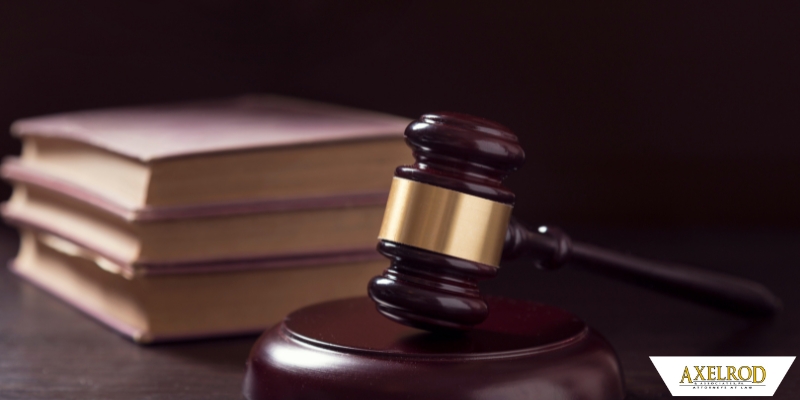Discovering the Approaches Utilized by Charm Attorneys to Successfully Advocate for Clients in Appellate Courts and Legal Process
The detailed landscape of appellate campaigning for needs lawyers to use a diverse variety of techniques to efficiently represent their clients. Secret amongst these are precise lawful research and the artistic crafting of convincing briefs, which function as the structure for engaging debates in appellate courts. The ability to involve judges via certain oral campaigning for can substantially influence situation end results. However, recognizing the nuanced characteristics of judicial preferences and trends remains an essential yet often ignored facet of successful advocacy. As we explore these methods, a much deeper assessment exposes the intricacies that define effective appellate method.
Recognizing Appellate Court Characteristics
Recognizing the intricate characteristics of appellate courts is crucial for attorneys browsing the complexities of the appeals procedure. Appellate courts serve an unique function within the judicial system, primarily concentrating on assessing the decisions of reduced courts to make sure lawful accuracy and adherence to procedural criteria. Unlike high court, appellate courts do not conduct new tests; rather, they analyze the record from the reduced court, review lawful arguments, and think about composed briefs sent by both parties.
In this environment, attorneys must realize the importance of legal precedent, as appellate courts often rely on well-known situation regulation to educate their choices. Experience with the policies of appellate procedure is equally essential, as step-by-step mistakes can jeopardize a situation. Additionally, understanding the unique structure and choices of appellate courts can lead lawyers in customizing their debates efficiently.
The critical discussion of problems on allure is crucial, necessitating a clear identification of legal questions and a convincing articulation of why the lower court's decision warrants evaluate. Overall, a comprehensive understanding of appellate court characteristics equips attorneys to create compelling disagreements and supporter properly for their clients in search of justice.
Importance of Thorough Legal Study
Extensive legal research study is an essential pillar of effective appellate advocacy, as it equips lawyers with the vital expertise needed to construct solid arguments. This procedure entails an exhaustive evaluation of statutes, situation law, and lawful criteria relevant to the problems available. By diligently evaluating these sources, appeal lawyers can identify authoritative support for their settings, which is crucial in encouraging appellate judges.
Moreover, comprehensive lawful study makes it possible for lawyers to prepare for counterarguments that rival counsel may provide. appeal attorneys Colorado. Recognizing the nuances of the regulation enables lawyers to resolve possible weak points in their cases proactively, thereby strengthening their general setting. Additionally, knowledge with previous judgments and fads in appellate jurisprudence can offer understandings into just how certain disagreements have actually gotten on in similar cases, leading attorneys in fine-tuning their strategies
Ultimately, comprehensive lawful research not only improves the high quality of legal briefs but likewise contributes to a more compelling dental campaigning for. By demonstrating a deep understanding of the legal landscape, lawyers can establish reputation with the court, which is vital for attaining beneficial outcomes in appellate procedures. In this affordable arena, the capacity to take advantage of careful research can make a substantial difference in the success of an appeal.
Crafting Persuasive Appellate Briefs
Crafting persuasive appellate briefs calls for attorneys to boil down intricate lawful disagreements into clear, succinct, and compelling narratives. The performance of a quick depend upon its capability to engage the court while providing a logical development of idea. Attorneys need to start by describing the vital issues and making sure that each argument is supported by pertinent laws, instance legislation, and accurate proof.

Moreover, the tone has to be expert find out here yet available, preventing overly intricate lawful lingo that might cover the disagreement. Lawyers need to expect counterarguments and address them preemptively, reinforcing their setting.
Conclusion areas must succinctly sum up the key arguments while advising the court towards a specific resolution. Ultimately, a well-crafted appellate short not only verbalizes the customer's setting yet additionally shows the lawyer's proficiency of the law, considerably influencing the outcome of the allure.

Understanding Dental Debate Methods
Effective dental argument techniques are essential for appellate attorneys looking for to persuade judges and progress their clients' rate of interests. Understanding these techniques involves a mix of preparation, calculated interaction, and a deep understanding of lawful concepts. Attorneys must distill their situation's core debates right into an engaging narrative, ensuring quality and brevity to maintain judicial focus.

In addition, using influential ornate find more information strategies-- such as examples, hypotheticals, and emphatic phrasing-- can enhance the effect of a disagreement. Utilizing these tools judiciously helps share complex legal concepts much more understandly. Practicing dental arguments with simulated sessions furnishes lawyers with the needed skills to improve their shipment and adapt to the court room environment, ultimately cultivating a convincing and reliable presentation that reverberates with appellate courts.
Navigating Judicial Preferences and Trends
Recognizing judicial preferences and patterns is essential for appellate lawyers aiming to customize their disagreements properly. Each appellate court frequently displays distinct propensities influenced by its structure, historic choices, and the individual approaches of its courts. Attorneys need to evaluate past rulings and opinions to discern these preferences, enabling them to straighten their debates with what reverberates most with the court.
Looking into judicial backgrounds and certain situations can supply insights into exactly how particular judges technique concerns such as statutory interpretation, procedural policies, and evidentiary requirements. Attorneys must additionally understand any type of fundamental legal fads, including shifts in public policy or emerging lawful theories, that may impact judicial decision-making.
Including this knowledge into appellate briefs and dental disagreements improves the lawyer's ability to support persuasively for their customers. By recognizing judicial choices, attorneys can frame their debates in a way that is most likely to involve the court's passions and resolve its worries. Ultimately, navigating these dynamics can considerably affect the outcome of an appeal, underscoring the importance of calculated prep work in appellate campaigning for.
Conclusion
To conclude, the efficiency of charm attorneys in appellate courts rests on a complex method that encompasses extensive legal research, the building of persuasive briefs, and the mastery of oral campaigning for techniques. By recognizing the characteristics of appellate court procedures and adapting approaches to line up with judicial preferences and patterns, lawyers significantly boost their capacity to promote for clients. Such diligence and know-how ultimately add to enhanced results in the complicated landscape of lawful appeals.